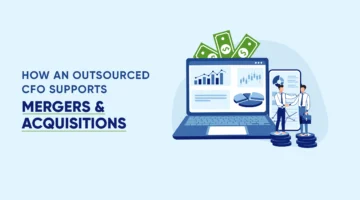What Are a Company Controller’s Responsibilities?
Company Controller’s Responsibilities
Perhaps you are looking to hire a company controller. Or perhaps you’re just curious what it is a company controller does. In many companies, each person is laser-focused on their own duties. You may not know what your desk or cubicle neighbor does. You may not even be sure what your direct supervisor does. Here, you can learn what your company’s controller should be or is responsible for.
A company controller is responsible for many facets of the day to day financial operations of a company. This includes most duties in four major categories: management, reporting, transactions and compliance.
Management
Accounting and Finance Departments
Your company’s controller is basically the manager and supervisor for your accounting and finance departments. They oversee the departments’ daily tasks and operations and give their approval for companywide financial data.
Point of Contact with Executive Team
They also serve as the primary point of contact between the accounting and finance departments and your company’s executive team. All financial data the executive team receives and uses goes from the accounting and finance departments to the executive staff via the controller. The controller will use the insights from their staff to guide the executive team in their decisions.
Operations
The controller decides which processes the accounting and finance departments use in their day-to-day operations. Their policies and procedures determine how the departments operate and keep the company running smoothly. This includes everything from streamlining and benchmarking to the accounting software the company uses.
Decision-making
A company’s controller plays a big role in financial decisions. The CFO and CEO typically have the final say, however, they make those decisions based on financial reports. The financial reports are created by the controller and their accounting and finance staff. The controller measures any risk involved in the decision, whether the company can sustain the decisions financially and more.
Reporting
Budgeting
Controllers prepare the budget and subsequently the budget-to-actuals for a company. Using data from the executive team, their staff and any other branches of the company, they create the budget for the year or quarter. They are also responsible for analyzing the budget against the actual amount of money spent during those periods. This data is used to create the budget-to-actual, which the company can use to adjust their course.
Statements and Reports
Your company’s controller is responsible for preparing the company’s financial statements and reports. While the actual report preparation often falls to the accounting staff, the controller does get final oversight and approval.
Pricing
Often, when it’s time to adjust the service menu or add a new product to the lineup, a company’s controller plays a vital role. The controller will work closely with the CFO to ensure that the finances of the company can handle the inherent risk.
Transactions
Accounts Payable and Receivable
The controller oversees the Accounts Payable (AP) and Accounts Receivable (AR) staff and processes. So, they make sure the company is paying all their suppliers and receiving payments from all their clients. These payments are vital to keeping the company operating smoothly.
Reconciliation
Bank reconciliation is another of the controller’s responsibilities. During a reconciliation, the person performing the process ensures that every debit or credit on a bank statement or credit card bill is accurate and accounted for. This way, the company can protect themselves against embezzlement or other kinds of fraud. It also protects the company from honest mistakes on the part of the bank or financial institution.
Payroll
Perhaps most important to the company’s employees, the controller also makes sure that payroll is accurate. Because tax deductions, health insurance payments, accurate paychecks and more all fall under the controller’s oversight.
Bookkeeping Oversight
Like most financial data a company uses, the bookkeeping figures are provided by the accounting and finance staff. However, the controller will have final approval of that data and use it to compile reports and other data. These reports and pieces of data will then be used in other areas of the company.
Compliance
Public Accounting
When a company is publicly traded, the controller also makes sure that they are compliant with all applicable regulations. This includes stockholder interactions and reporting, Securities and Exchange Commission (SEC) compliance and applicable investor reporting. Therefore, they protect the company from frequent and costly audits and maintain the trust of their clientele and shareholders.
Audits
When it is time for a routine audit, the controller helps prepare all the documentation the audit officer will require. This makes the audit run more smoothly, saving the company time, money and even hassle. After the audit, the controller is also responsible for making any changes the audit requires for compliance.
Generally Accepted Accounting Principles (GAAP)
All accountants are held to the standards laid out by the Generally Accepted Accounting Principles (GAAP). The controller ensures that these standards are maintained in the accounting and finance departments. This keeps the company compliant and reliable.
Tax Filings
The controller is also responsible for filing the company’s taxes. This includes quarterly sales tax forms, if applicable. The company and the controller may opt to contract a third-party business tax accountant. In that event, the controller is responsible for providing the tax accountant with all the information they’ll need to file the tax form accurately. Therefore, the company can minimize their tax bill and maximize their tax return.
What are the company controller’s responsibilities? They don’t just oversee your accounting and finance staff. They keep your company operating smoothly.
Get Your Free Consultation
Gain Financial Visibility Into Your Business
We provide outsourced CFO, fractional CFO, and temporary CFO, Controller, and operational Accounting services that suit the needs of your business.
- Hourly Rates
- No Hidden Fees
- No Long Term Requirements
NOW CFO provides the highest level of expertise in finance and operational accounting to accelerate results and achieve strategic objectives for sustainable growth and success.
After completing the form, a NOW CFO Account Executive will reach out and learn more about your needs so that we can pair you with the right Partner.



